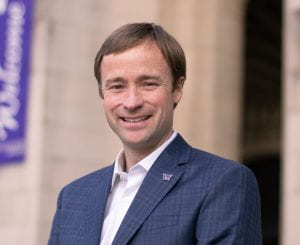By Jevin West
No one is immune to misinformation — not young people, older people, conservatives, liberals, politicians (for sure), or even professors that teach classes on Calling BS. We are all susceptible. But there is one human quality that may help: curiosity.
You are probably (curiously) asking: can one actually measure this innate quality? According to recent research, it seems so. And it seems to counteract what psychologists call motivated reasoning — a powerful misinforming force where ideological commitment trumps evidence-based arguments.
Interestingly, researchers find that science comprehension, regardless of political party, can actually magnify rather than mollify partisan assessment. However, when focused on science curiosity alone, they find that this biased information processing is lessened. Curiosity opens our minds, creates more active participation, and makes learning pleasurable rather than laborious or defensive.
OK, if this is true, can we teach curiosity? From my experience teaching hundreds of students about the Art of Skepticism, I think so. Humans are intrinsically curious creatures; they just need some nurturing every once in a while. Teachers and librarians do this every day. I often point to Carl Sagan’s writings and his sincere efforts to debunk pseudoscience. Carl was not only a world-class scientist, he was a gifted storyteller that sparked wonder, while simultaneously teaching critical thinking. My colleague, Carl Bergstrom (different Carl), and I have tried to model this in our classroom. We encourage incessant questioning of the source, data, claims and analysis: Who is telling me this? How do they know it? And what do they have to gain from it? And to do so in a non-accusatory way that is more “like reporters rather than attorneys, as encyclopedists rather than activists,” as Mike Caulfield says so eloquently.
This is an election year so motivated reasoning will be in overdrive. Compound that with a pandemic and a parallel infodemic and even public health policies become political markers. In the near term, curiosity may be one of the few antidotes available.
Jevin West, an associate professor at the University of Washington Information School, is the director and co-founder of the Center for an Informed Public.

